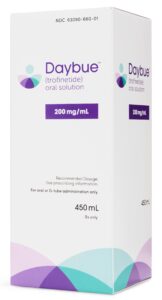Rett syndrome is a rare genetic disorder that predominantly affects girls and leads to severe physical and cognitive impairments. It affects around one in 10,000 girls born each year. Named after Austrian physician Andreas Rett, who first described the condition in 1966, Rett syndrome primarily manifests in early childhood, typically between six months and two years of age.
Caused by mutations in the MECP2 gene located on the X chromosome, Rett syndrome is primarily an X-linked disorder; however, there have been rare cases of boys being affected, usually with more severe symptoms due to the absence of a second X chromosome. The MeCP2 protein plays a crucial role in regulating the activity of genes involved in brain development.
Rett syndrome is characterized by a distinctive pattern of symptoms that gradually emerge after a period of seemingly normal development. These symptoms include loss of purposeful hand skills, loss of verbal abilities, impaired motor coordination and the development of repetitive hand movements such as hand-wringing or hand-washing. Individuals with Rett syndrome may also experience breathing irregularities, seizures, cognitive impairment and difficulties with social interaction.
The Rett syndrome community received great news this year. In March, the US Food and Drug Administration (FDA) approved Daybue (trofinetide), the first and only treatment for Rett syndrome.
To learn more about Daybue and what’s next for the Rett syndrome community, Xtalks spoke with Dr. Kathie Bishop, PhD, Senior Vice President and Head of Rare Disease and External Innovation, at Acadia Pharmaceuticals. Dr. Bishop discusses how Acadia is continuing to build bridges with the Rett syndrome community. Read on to gain more insights from Dr. Bishop.

is the first and only
FDA-approved drug
for Rett syndrome.
How is Daybue thought to treat the underlying neurodevelopmental aspect of Rett syndrome?
Dr. Bishop: Rett syndrome is a genetic disorder caused by a mutation in the MECP2 gene. Rett syndrome is a neurodevelopmental disorder — not a neurodegenerative disease. What happens in the brain of patients with Rett is that the neurons don’t develop properly, and the neurons lose the connections between each other, so the synapses are not functioning properly and don’t form properly.
Daybue, also called trofinetide, is a tripeptide. It’s a small fragment of a growth factor called IGF-1. What’s been shown in mouse models of Rett syndrome which also have the genetic disease, is that trofinetide helps strengthen those connections between the neurons. It helps the synapses to connect better with each other and to function better. So, although it’s not a genetic treatment for Rett syndrome, it does act on the core pathophysiology behind Rett syndrome, which is that synaptic loss.
What safety and efficacy results were observed in the Phase III trial of Daybue?
Dr. Bishop: The Phase III clinical trial was conducted here in the US. It was a large clinical trial of 187 girls and women with Rett syndrome between the ages of five and 20. Half were randomized to placebo and half to Daybue.
The main efficacy results were on two key measures, or aspects, of Rett syndrome. One is the RSBQ, or Rett Syndrome Behavioral Questionnaire, which involves 45 questions that the caregiver fills out about the patient with Rett syndrome. These questions are about core aspects of Rett syndrome, things having to do with motor function (both hand function and walking function), behavior, sleep, breathing and communication. We saw a significant improvement with Daybue compared to the placebo.
The trial was unique as the US FDA asked us to have two primary endpoints, which is a pretty high bar.
– Dr. Bishop
The other primary endpoint was assessed by the clinician, and it’s called the Clinical Global Impression-Improvement (CGI-I) scale, or the clinician assessment of improvement. It asked how the Rett syndrome has changed overall since the start of the study. And there again, we saw a clear benefit with Daybue compared to placebo.
We had a key secondary endpoint assessing the communication ability of the girls. In Rett syndrome, patients lose the ability to communicate verbally and non-verbally. So, most of them cannot speak and they also can’t use things like eye gaze or pointing with their hands to indicate what they want. This is one of the key features that caregivers and parents say is really important to improve. So the key secondary assessment is called the CSBS (Communication and Symbolic Behavior Scales) which looks at this non-verbal communication. There we also saw a benefit with Daybue compared to placebo at the end of the trial.
We didn’t identify any safety concerns during the trial with trofinetide or with the longer-term trials that we’ve done with trofinetide. We did see a couple of side effects. The most common were diarrhea and vomiting. These were all mild and moderate in nature, but there was a higher rate with trofinetide compared to placebo. As we launched the drug, we, along with some of the clinicians and nurses in the field, instituted a diarrhea management plan to help the caregivers deal with the diarrhea.
Are there any patients with Rett syndrome who wouldn’t be able to take Daybue?
Dr. Bishop: We were very happy with the FDA approval because Daybue was essentially approved for anyone who has Rett syndrome. That includes females, but there’s also a small number of males with Rett syndrome, and Daybue is also approved for them.
Rett syndrome symptom onset is usually around 18 months of age, and they usually get diagnosed around that two-year mark. Since Daybue is approved for adult and pediatric patients two years of age and older with Rett syndrome, that covers all of the ages of patients with Rett syndrome.
How and when should Daybue be administered?
Dr. Bishop: Daybue is a liquid formulation and it’s given twice a day, once in the morning and once in the afternoon or evening. It’s a sort of strawberry-flavored liquid that patients with Rett can either drink or the parents can administer through a G-tube. Some patients with Rett syndrome have a G-tube because they have problems with nutrition or swallowing. And the parents of Rett syndrome patients are very used to giving medications through a G-tube, so that’s actually very easy for them to do.
What actions is Acadia taking to increase awareness of Rett syndrome?
Dr. Bishop: It’s very exciting for the Rett community, both for the advocacy groups and the parents of patients with Rett to have the first and only FDA-approved drug because it does increase awareness about Rett syndrome. I think the approval may also get other pharmaceutical companies interested in developing additional drugs for Rett syndrome, which would be great.
We work very closely with patient advocacy groups here in the US, like the International Rett Syndrome Foundation and the Rett Syndrome Research Trust, and are helping them increase awareness about Rett syndrome.
– Dr. Bishop
We have Daybue on the market now, but like with other rare diseases, it would be great to have multiple drugs. Daybue may be able to work alongside other drugs that might come in the future, probably due to its mechanism of action.
How is the approval of Daybue a significant milestone for Acadia?
Dr. Bishop: Acadia has one approved drug before this one, which is Nuplazid (pimavanserin), which is approved for the treatment of Parkinson’s disease-related psychosis. For Acadia, it’s very significant to have our second approved drug and our first approved drug within rare diseases.
A couple of years ago, Acadia decided that in addition to psychiatry and neurology, they wanted to invest in and focus on neurologic rare diseases. So it’s very exciting to have a rare disease approval.
What next steps is Acadia taking for the Rett syndrome community?
Dr. Bishop: Once we announced approval and then when we announced launch of Daybue, we got a lot of questions from the Rett syndrome community, especially since this is the first approved drug for this disorder.
We’ve worked very closely with the International Rett Syndrome Foundation. We’ve had some webinars and are having more to help answer any questions and stay in touch with the community. We also sponsor and participate in their annual meeting and their community events.
We also have a caregiver advisory board, which I think is important because we hear from caregivers about what’s important to them, not only about Daybue, but about Rett syndrome and taking care of children with Rett syndrome.
– Dr. Bishop
Acadia also has a Patient Advocacy and Industry Relations team who are on any given day anywhere in the country attending a wide array of advocacy events, RettAway, Rett syndrome Strollathons and parent events. We keep an ear very close to the community. We get to know the parents very well.
According to Acadia, launching Daybue was only the first step. Acadia is very much continuing to build bridges and learn from the Rett syndrome community.












Join or login to leave a comment
JOIN LOGIN